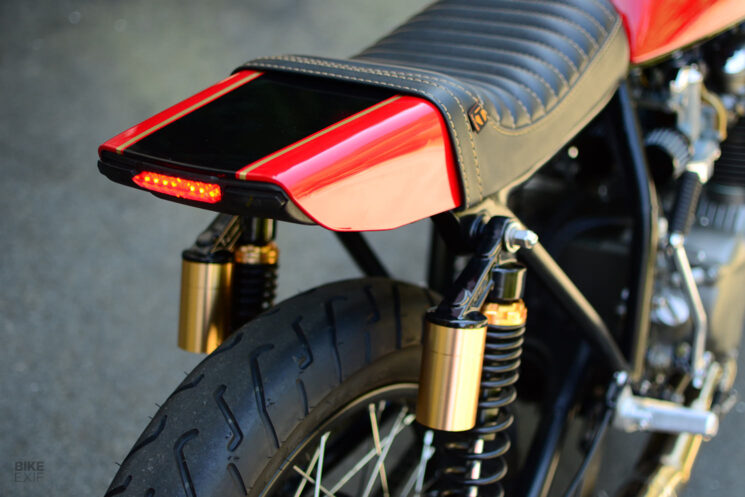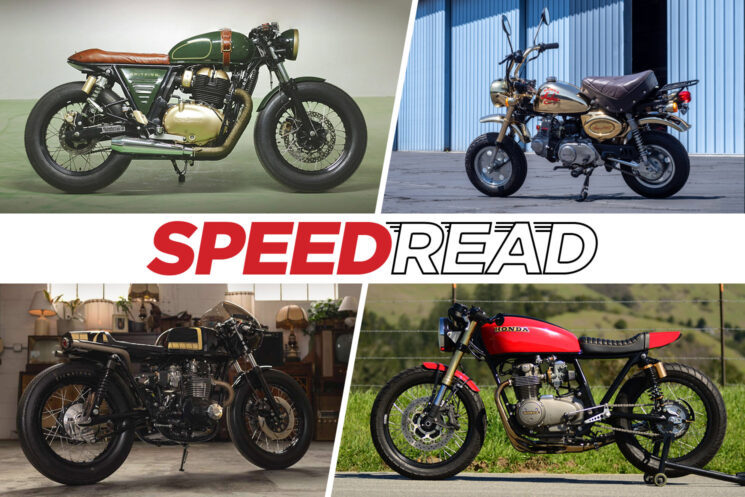
One bike sticks out like a sore thumb this week; a rare Honda Monkey Gold Edition, currently for sale through Iconic Motorbike Auctions. It’s in the company of three café racers—a Yamaha XS650, a Royal Enfield Interceptor 650, and a Honda CB550.
![]()
For sale: 1984 Honda Monkey Gold Edition Honda’s modern classic mini-bikes are enjoying their moment in the sun right now. But while there’s something appealing about a teeny tiny Honda with vintage style and modern reliability, there’s something even more appealing about a rare classic.
You’re looking at a rare 1984 Honda Monkey Gold Edition. It’s as cute as a button, and it’s currently for sale over at Iconic Motorbike Auctions.
![]()
If you grew up in the USA, you probably know the Honda Monkey by its US-specific monikers; the Honda Mini Trail or the Honda Z50. Whatever you call it, the Monkey is the quintessential mini-bike, sporting a tiny engine, a squat build, a chunky seat, and mini ape bars. And if you’ve been lucky enough to ride one, you’ll understand how much fun a 49 cc four-stroke with a four-speed transmission can be.
![]()
But there’s also a brilliant backstory to the Monkey’s development, that we admittedly didn’t know about until now. According to Iconic, “[The Monkey] started life in 1961 as a ride at the Tama Tech amusement park, a former venture owned by a Honda subsidiary that was all about promoting the ‘joys of driving’.”
“The name came from the fact that riders looked like monkeys on the diminutive machines, but the bikes proved so popular that Honda created a production version in 1964.”
![]()
This particular Monkey is one of 5,000 ‘Gold Edition’ models that were released in Japan. As implied by the name, the bikes were lathered in gold chrome paint, making them somehow gaudy and more adorable at the same time.
Showing 3,348 km [2,080 miles] on the clock, it’s been given a thorough once-over by the Iconic team. Are you as tempted as we are?
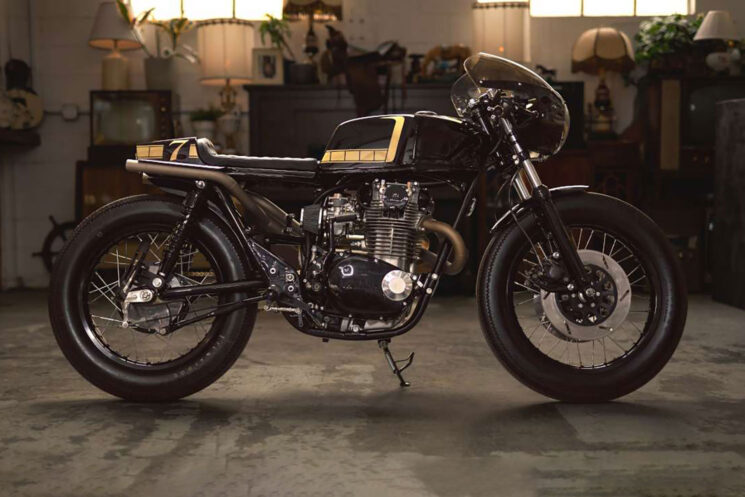
Yamaha XS650 by Ill-Fated Kustoms The Yamaha XS650’s parallel-twin engine is easily one of the Japanese marque’s most iconic powerplants—which is probably why we never tire of seeing it customized. This Yamaha XS650 café racer comes from Ill-Fated Kustoms in Calgary, Canada, and it’s a total peach.
The 1983-model XS650 was customized for a customer from Saskatchewan. The brief called for a café racer, but the team couldn’t resist blending a little 80s Grand Prix style into the bike. And we’re glad they did.
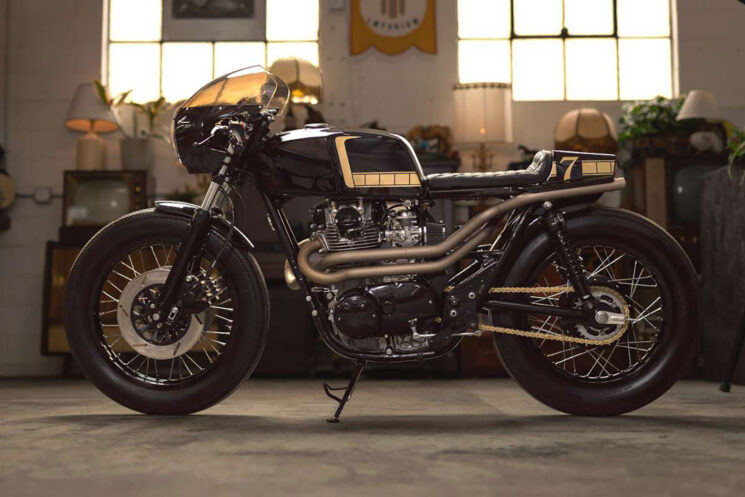
The Yamaha now wears a repurposed Suzuki fuel tank, followed by a hand-shaped seat cowl. IFK modified the subframe to suit the new seat’s proportions, then rewired the bike and ditched the airbox to empty the space beneath it. Look closely, and you’ll spot a hidden rear fender that keeps much out of the pod filters.
The engine was rebuilt and repainted and now exhales via an exquisite twin exhaust system that snakes its way through the bike, exiting alongside the tail.
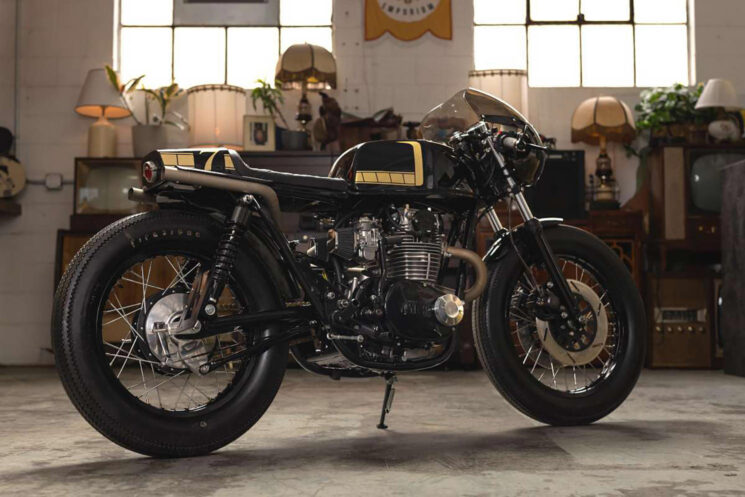
A bubble-shaped fairing adds a touch of vintage race bike class to the build. A classically styled taillight does duty at the opposite end of the bike, neatly embedded into the back of the rear cowl.
Other modifications include clip-on bars, fitted with bar-end mirrors and turn signals, and spoked wheels with sawtooth tires. But it’s the black and gold livery that gets our nostalgic blood pumping. Executed by Kevin Cuffley, it sets the XS650 off perfectly. [Source]
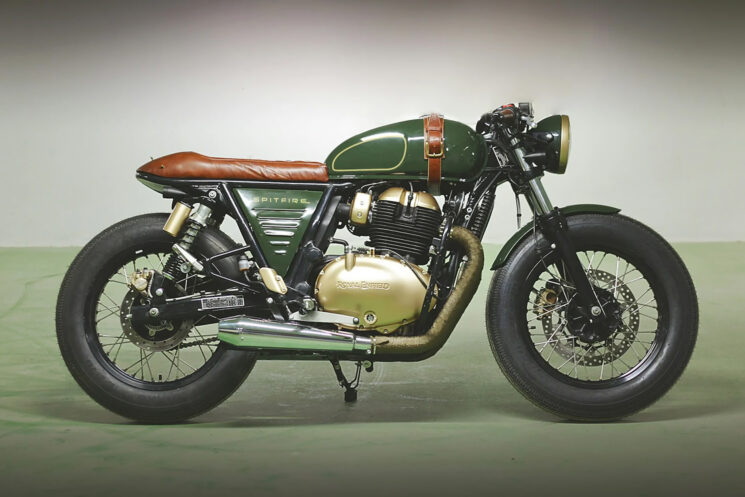
Royal Enfield Interceptor 650 by Zain J. Design The Royal Enfield Interceptor 650 (known as the INT650 in the USA) has proven its potential for customization time and time again. The platform is easy to ride, easy to fiddle with, and boasts a remarkably beautiful engine for a modern factory motorcycle.
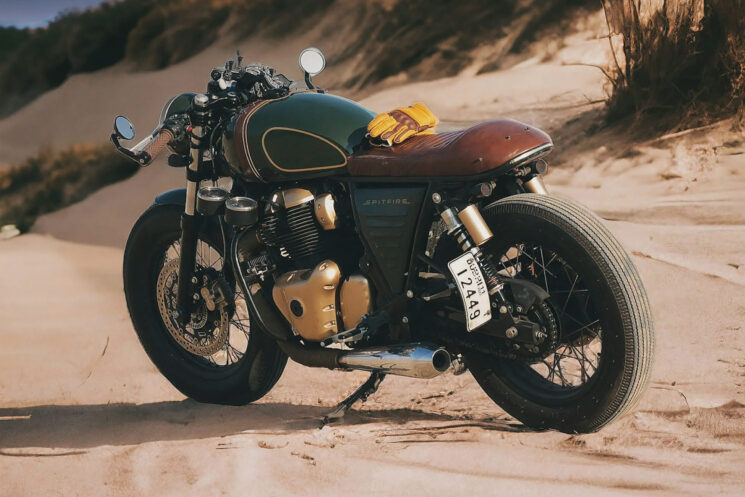
This Royal Enfield Interceptor 650, built by Zain J. Design in Dubai, is a restrained and tasteful example of the bike’s potential. There’s nothing extreme here—just a host of neat details, loosely inspired by the famous Supermarine Spitfire fighter plane.
The big hit here is the judicious use of green paint and brown leather trim. The seat and grips are obvious details, but it’s the tidy fuel tank belt that really sets things off. And then there are the subtle champagne gold finishes that adorn the engine.
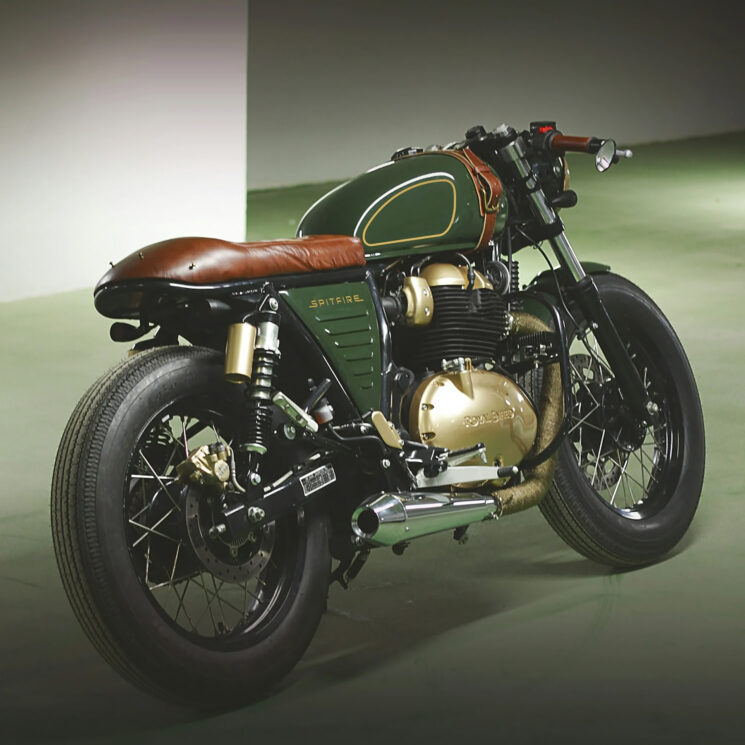
Zain J. Design trimmed the cockpit down by relocating the dials to the left side of the bike (which is arguably less hassle than wiring in aftermarket clocks). Clip-ons with bar-end mirrors ensure a sleek profile, while Firestone tires and exhaust wrap add vintage British café racer style—whether you like them or not. [Source]
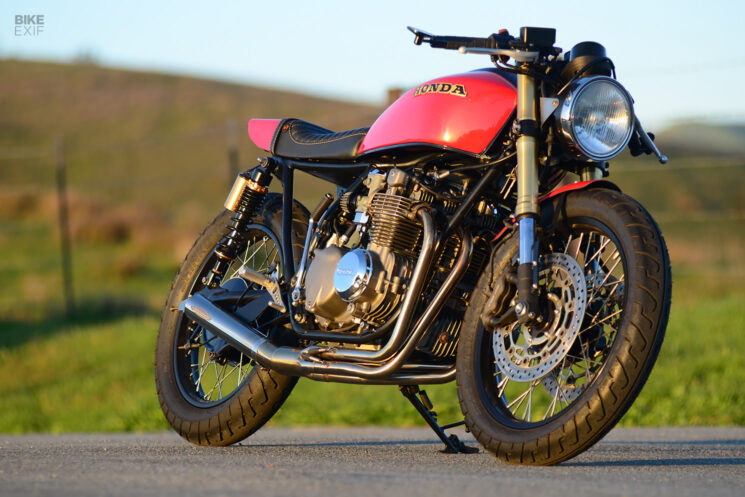
Honda CB550 by Luis Baez We’ve seen our fair share of Honda CB550 customs, but they seldom prioritize functionality at the level that Luis Baez’s CB does. The man is a mechanical engineer by trade—and it shows.
Luis’ Honda CB550 uses as many original Honda and new-old-stock parts as it can get away with, giving it a vibe that doesn’t stray far from Honda’s playbook. But the subdued aesthetic belies the bike’s impressive spec.
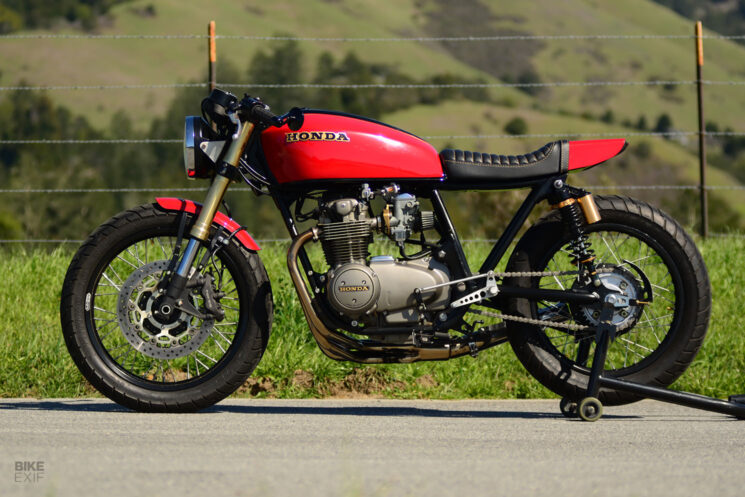
For starters, Luis treated the engine and transmission to a comprehensive rebuild, complete with new pistons, rings, bearings, and gaskets. The cam chain and drive chain are new, and the head was rebuilt to accommodate upgraded valves. The CB runs with pod filters and a four-into-one Delkevic exhaust; Luis fettled the carbs to compensate.
A Honda CBR600RR front-end gives the bike a handling boost, matched to a Cognito Moto hub. The bike rolls on 19F/18R rims, laced with stainless steel spokes and shod with Shinko rubber. Fresh piggyback shocks prop up the rear.
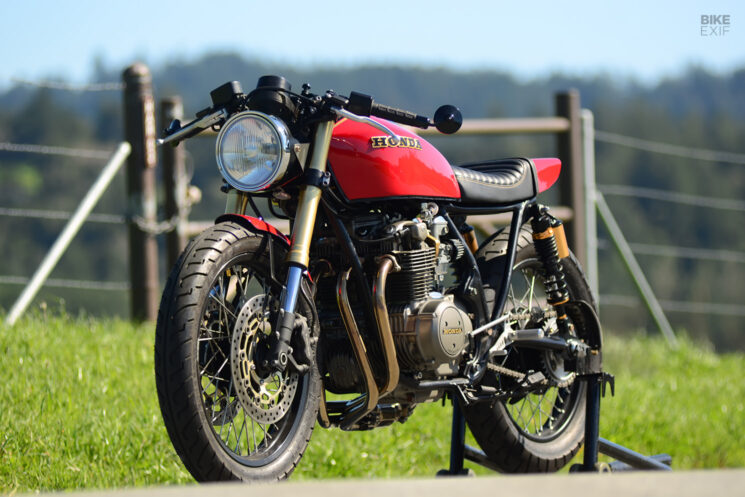
Up top, Luis cut and shut the subframe and reinforced it, then topped it off with a Tuffside seat. The taillight housing is a custom 3D-printed part, manufactured from a carbon-filled nylon material. Luis also modified a Honda CB750 fuel tank to sit low on the 550’s frame.
The bike’s reworked electronics are all tucked away in a custom-made tray under the seat, along with a lightweight Shorai battery. Other custom touches include the front fender and rear-set foot controls. The cockpit is a mashup of various Honda bits; CBR clip-ons, OEM CB550 switches, and a CB200 tachometer in a 3D-printed housing that also holds the ignition. A classic red livery takes the build over the finish line, along with a full complement of stainless and plated fasteners. [More]
